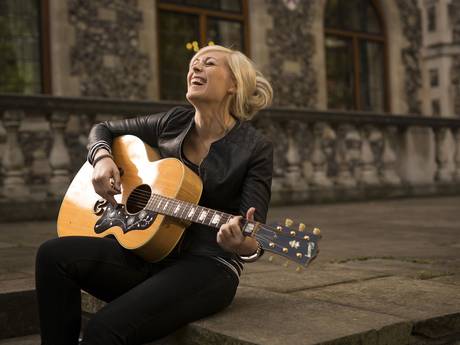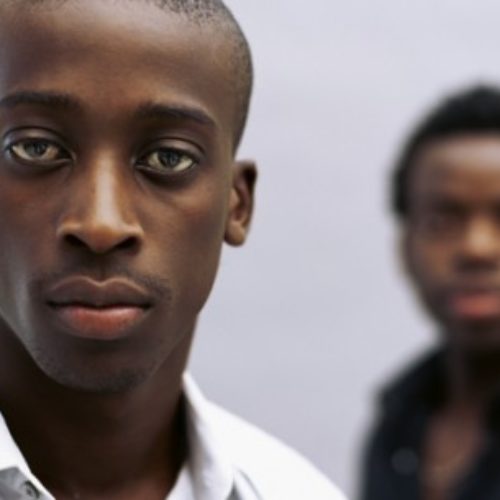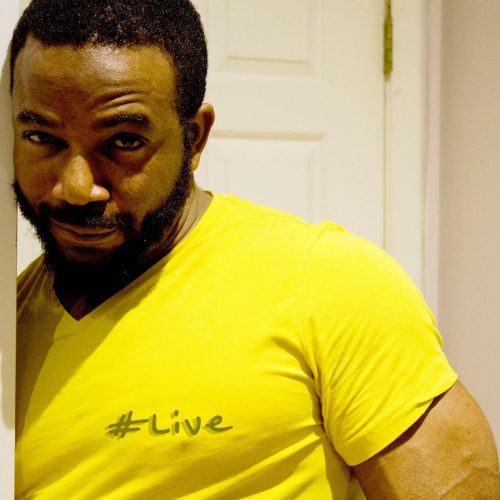‘I’m gay. God loves me just the way I am.’ – Christian rock-star Vicky Beeching
Written by Patrick Strudwick, originally published in independent.co.uk
There is no quicker, more effective way to destroy someone than to isolate them. Guards at Guantanamo Bay know this. Psychiatrists know this. Vicky Beeching, 35, British star of the American Christian rock scene, one of the most successful artists in US mega-churches and now one of the most sought-after religious commentators in Britain, knows this too.
There is also no better way to destroy a group of people than to ensure they do the job for you. And so, as Beeching’s story pours out on a hot afternoon – a story of psychological torture, life-threatening illness and unimaginable loneliness, imposed all around from a supposedly godly environment – one question fills the air: if shrinks, brutes and fascists know how best to devastate a person, does the Church of England? Or do they know not what they do?
We meet twice. On the first occasion, Beeching, normally enlivening Radio 4’s Thought for the Day or any number of Sunday morning TV discussion programmes, sits opposite me in a café in Soho. She pushes a piece of paper in my direction. It is a précis she has written of her background: of growing up in a conservative Christian household in Kent, first in the Pentecostal Church then in the evangelical branch of the Church of England, of going to Oxford to study theology, of the EMI recording contract that sent her to Nashville 12 years ago and launched a successful singer-songwriting career… and then a line that jars and jolts. I turn the piece of paper over and look up to see her smiling nervously.
“I’m gay,” she says, confirming what is written. She has never said this publicly before – a handful of people in her private life know. She has only just told one her closest friends, Katherine, and Katherine’s father, Justin Welby, the Archbishop of Canterbury.
The enormity of the political ramifications of this disclosure scarcely have a second to sink in – a theologian who spends holy days with the Archbishop, whose God-fearing lyrics are sung by millions in America’s Bible Belt, coming out as a lesbian – before I begin to reflect on the implications for her personally.
She will be liberated. She may well, through her commentating work, become a key figure in the liberalization of Anglicanism. And she will be crucified. Boycotts of her music are already in place since Beeching decided to speak up for same-sex marriage over a year ago. Hatred has been flung at her online ever since: “You’ve been deceived by the devil,” is a typical, charming comment.
Then, as we begin to talk over these implications, she slides her fringe to one side to reveal a wide, white scar running down the length of her forehead. It is also concealed by make-up. Beeching knows how to cover things up. A week later, she arrives at my flat in east London to tell the story of the scar. It is the story of her life.
As a little girl, Vicky Beeching soon became aware of the attitudes towards homosexuality surrounding her. She learnt of them in Sunday school. “It was in children’s picture books about the destruction of Sodom and Gomorrah – hailstones of fire raining down on these cities known for the ‘abomination’ of homosexuality. It was viewed as a terrible evil, the cause of the floods. I don’t think that my parents brought it up – it was just a given.”
At 12, her feelings towards other girls at school began to deepen. “Realising that I was attracted to them was a horrible feeling,” she says, looking down. “I was so embarrassed and ashamed. It became more and more of a struggle because I couldn’t tell anyone.” As adolescence emerged, with school and Church services several times a week, alienation set in.
“I increasingly began to feel like I was living behind an invisible wall. The inner secrecy of holding that inside was divorcing me from reality – I was living in my own head. Anybody I was in a friendship with, or anything I was doing in the church, was accompanied by an internal mantra: ‘What if they knew?’ It felt like all of my relationships were built on this ice that would break if I stepped out on to it.”
Beeching is cross-legged on a sofa in my living-room, deportment impeccable, done up in a tailored jacket, made up with absolute precision. Her face has a divine, ethereal, bone-structure-to-die-for beauty, like Sharon Stone suppressing her basic instincts. All of this, however, looks different, harrowed, when Beeching describes the attempts to cure her lesbianism. She went to a Catholic priest at 13: a confession to absolve the innate.
“When I said that I had feelings for the same sex he prayed the prayer of absolution, for me to be forgiven. And that was it.” Afterwards, her feelings remained, which “only increased the sense of shame. I felt there was something really wrong with me, that maybe I was so sinful and awful I couldn’t be healed.”
She reached her first breaking point that year. One night alone in her bedroom, still just 13 years old, the schism between feelings and beliefs overcame her.
“I felt like it was ripping me in half. I knew I couldn’t carry on. I was trying to align the loving God I knew and believed in with this horrendous reality of what was going on inside me,” she says. “I remember kneeling down and absolutely sobbing into the carpet. I said to God, ‘You have to either take my life or take this attraction away because I cannot do both.‘” Her eyes glisten for the first time.
 By 16, the isolation, fear and shame were escalating. Her mother, who is very musical, had taught her to play the piano and guitar, and Beeching was already writing worship songs and performing them at services in front of hundreds. “It was my one outlet.” Her first song, called “Search Me O God”, contains, tellingly, the line: “Find any way in me that does not reflect Your purity.”
By 16, the isolation, fear and shame were escalating. Her mother, who is very musical, had taught her to play the piano and guitar, and Beeching was already writing worship songs and performing them at services in front of hundreds. “It was my one outlet.” Her first song, called “Search Me O God”, contains, tellingly, the line: “Find any way in me that does not reflect Your purity.”
That summer, at a Christian youth camp in the English countryside, Beeching became subject to an altogether more extreme way to make her sexuality “pure”: an exorcism.
I ask her to name which camp it was, which organisation was responsible.
“Do I have to say?” she asks, with a half grimace. “It might make them look bad.”
“Yes, it will,” I say.
“This happens at a lot of them. It feels a bit mean to pick one,” she replies, chiming with an earlier comment: “I’m not angry with the Church.”
Instead, she takes herself back to that day. “I remember sitting in my seat at this big conference, with about 4,000 people. Someone had preached about how God could set you free from anything, and I was desperate, I thought, ‘I have to deal with this, it’s breaking me.’ They invited us to the front.” The shy teenager got up.
“The walk felt like 10 years. The music was very loud. At the altar one of the prayer team said, ‘What would you like us to pray for you about?’ I said, ‘It’s really hard for me to say this but I am attracted to people of the same sex and I’ve been told God hates that and I’m so ashamed and I need Him to take it away because I can’t keep living like this. I’m so sad and depressed, I can’t carry on.'”
Beeching stood with her arms outstretched as the leaders brought in extra people to perform the deliverance. “I remember lots of people placing their hands on my shoulders and back and front, praying in tongues really loudly and then shouting things: ‘We command Satan to let you go! Cast these devils out of you! We speak to you demon of homosexuality: let her go!’ People around me were wailing and screaming. It was really frightening. I was already feeling so vulnerable, it was horrible to think, ‘Am I controlled by demons?'”
How did it feel? “Degrading,” she says. “Very humiliating – it made me so embarrassed.”
And when this too didn’t change her orientation, Beeching turned inwards. “I began to disconnect.”
She spent as much time on her own as possible, pushing friends away at school, filling break times by working in the library alone. “It was too painful to be around people that didn’t understand.” She became a workaholic.
“I felt like there was something so wrong with me, according to the Church, that maybe I could make up for it by getting good grades.” On several occasions, Beeching tried to force an attraction to boys, by letting those who asked her out walk her to school, but she felt nothing. Instead, all her energy went in to work: the grades took her to Oxford (where she lived in a Christian hall of residence); at 23, the songwriting took her to Nashville.
For the next six years, Beeching lived in the fire-and-brimstone heart of conservative America, recording albums and touring the country’s vast churches. To avoid the desolation of her personal life, Beeching would perform endlessly, ensuring every birthday and public holiday was booked up.
Countless unrequited loves for straight female friends compounded the torment of her teenage years. “That was one of the hardest parts – to have your heart crushed so many times you wonder whether it actually has any life left in it,” she says, quietly. “It’s incredibly painful. I just wanted a soul mate.
By 2008, aged 29, she decided to move to California, hoping that San Diego would provide a more liberal setting. But this was the year that Proposition 8 – the state law to ban same-sex marriage – was to be voted on. The Christian lobby galvanized. And Beeching was being booked to perform at mega-churches throughout California.
“I would find myself at these events that were anti-equal-marriage rallies, but I was only booked to sing so there was no way I could say anything. If I had, I would have got kicked out.” It didn’t help that her contract with the Christian music branch of EMI had a “morality clause”, in which “any behaviour deemed to be immoral” would be a breach of contract.
The secrecy, the loneliness, the unerring work at churches hell-bent on attacking her own, erupted the following year. Her body started attacking itself.
“I was blow-drying my hair and looked in the mirror and noticed this white line down my forehead.” The scar grew and became “really noticeable – inflamed and red”. The day she handed in the master tapes for what was to be her last album, she went to the doctor’s, expecting to be handed some E45 cream.
“They said, ‘You need to sit down. This is really serious. It’s an auto-immune disease called linear scleroderma morphea, and a form of the disease called coup de sabre.’ It’s a degenerative condition where soft tissue turns to scarring. At that point they didn’t know if it was just localised or whether it would affect my whole body.” In the worst cases, one’s whole body can turn to scar tissue, including internal organs. It can cause epilepsy, blackouts, and can kill.
Beeching was told she would need extensive chemotherapy and to expect hair loss, weight gain and exhaustion. She went home to her apartment where she lived alone, and looked up pictures online of sufferers, many of whom lose parts of their face.
“I vomited,” she says. She flew home as soon as she could. “The doctor here said, ‘In our experience there will always be one thing you can name that is a point of stress, of deep trauma in your life, that triggers this.’ For me there was no question: it was the stress of my sexuality.” In hospital a few weeks later, Beeching made a vow.
“I looked at my arm with the chemotherapy needle poking out, I looked at my life, and thought, ‘I have to come to terms with who I am.'” She gave herself a goal: to come out by the time she was 35.
“Thirty-five is half a life,” she says, sadly. “I can’t lose the other half. I’ve lost so much living as a shadow of a person.”
Beeching had 18 months of grueling chemotherapy. The exhaustion was so acute that she was forced not to work, and instead, to think, to feel, to gradually accept her sexuality. She has never had a relationship. She didn’t meet an out gay person until she was 30. In recovery, Beeching went to visit Ruth Hunt, chief executive of Stonewall, who put her in touch with some out lesbians: the BBC newsreader Jane Hill, sports presenter Clare Balding and her wife, Alice Arnold, the former Radio 4 newsreader. “They said, ‘Be yourself and everything will follow.'”
One hopes it is that simple. Before we meet, I hear Beeching is being lined up to be one of the new presenters on Songs of Praise. She refuses to comment either way, instead replying simply that it would be a “dream job”.
At Easter this year, she came out to her parents. “I was terrified but they reacted really well. They said, ‘We’re so sorry that you had to go through this alone.'”
Beeching and her parents have agreed to disagree on the theology around homosexuality. “It’s a picture of what is possible, even when you don’t agree, that love can supersede everything.” She hopes the Church of England can one day follow suit.
“What Jesus taught was a radical message of welcome and inclusion and love. I feel certain God loves me just the way I am, and I have a huge sense of calling to communicate that to young people. When I think of myself at 13, sobbing into that carpet, I just want to help anyone in that situation to not have to go through what I did, to show that instead, you can be yourself – a person of integrity.”
After what Beeching has suffered, why not discard the faith that considers her sinful and wrong?
“It is heartbreaking,” she says, her eyes glimmering again. “The Church’s teaching was the reason that I lived in so much shame and isolation and pain for all those years. But rather than abandon it and say it’s broken, I want to be part of the change.”
As Beeching jumps into a waiting taxi, I think of all the young gay Christians who have spoken out over the years, who’ve told of their loneliness, their depression, the “cures” they sought, the suicides they attempted, and all who might hear Beeching’s story and feel less alone, and I whisper under my breath, for them, two words: thank you.
*
The most poignant part of this write-up for me was that prayer: ‘You have to either take my life or take this attraction away because I cannot do both.’
That sums up the inner struggle of every gay person who is yet to accept who he or she is.
About author
You might also like
A Collaboration With Kito Diaries
So, there’s a silent KDian named Sarah, who is seeking to do some work with KDians. She is Nigerian, an LGBT activist, believes every single person has a right to
Why Is It So Hard To Be Gay?
i-D Vice, one of London’s top fashion websites, released an article asking “why is it so hard to be gay and black”. They discussed about American musician Frank Ocean and
“I Was Like A Fish Out Of Water.” Kenny Brandmuse Gives Tell-All Interview
So Kenny Brandmuse, the man who broke the internet in 2015 with his coming out, recently sat to an interview with a few media outlets to give a very illuminating










16 Comments
Legalkoboko
August 20, 07:13Powerful.
courtsofdomasiobo
August 20, 07:50Amen.
courtsofdomasiobo
August 20, 07:51Amazing stuff
Dennis Macauley
August 20, 10:11This is almost the story of every gay person. I prayed that prayer too at some point. I think getting older is a blessing, you become more selfish in a good way. As you age you grow into your own and it becomes about the things you want, making your own bucket list and living on your own terms. I look forward to 30 and more wisdom to live my best life!!!
Khaleesi
August 20, 12:36@Dennis, I thought you said wedding bells start ringing in your family once you turn 30, how do you propose to ignore the deafening chiming bells? … lol
pinkpanthertb
August 20, 12:46LOL. Khaleesi what are you? The cold douse of reality?
Dennis Macauley
August 20, 13:17My dear, I’d insert my adrea bocelli CD and turn the volume so high that it drowns out the silly bells.
Fortunately the bells are currently ringing for my older brother. I still have 2 yeas to practice ignoring the bells. I look forward to it
victor
August 20, 11:42Sometimes I just tell myself that maybe I’m gay cause God wants me to be understanding of everyone cause there’s noway I would have understood anybody who wouldn’t be as straight as I am. Now I am a better guy cos while pple criticize without getting to know someone,I actually take the time to see the reason why some ppo can have certain struggles and I try to help them instead of acting all righteous. There’s a reason for everytin
pinkpanthertb
August 20, 12:02That’s a powerful understanding of your sexuality. Really cool.
Colossus
August 20, 18:22Oh i absolutely relate. When you’ve battles your demons alone, you tend to relate to what others are going through. You develop a listening ear and you become a better friend
Colossus
August 20, 18:25Battled*
king
August 21, 04:03“The most poignant part of this write-up for me was that prayer: ‘You have to either take my life or take this attraction away because I cannot do both.’”
I guess I could relate!!!!
king
August 21, 04:15But one thing is certain..the bible is true and real and it represents reality for all coz it unveils the spiritual who we really are!! That’s our core…(just take a look at a dead body and tell me what’s missing)..so I do not refute it, coz whether you like him or not HE IS GOD and yes HE IS LOVE and whether you like it or not WE are LOVED!!!
daemon
October 06, 17:45Is dere a way i can get my song reviewed heRe, its a power anthem for the LGBT community
pinkpanthertb
October 06, 17:56What do you mean when you say you want the song ‘reviewed here’?
daemon
October 06, 18:07I would like to share a song with you so, that, you can listen to it and then see if its worth sharing it publicly here on your website, i would like to observe people’s responses to it, and maybe you could contructively tell what you think about it as it gets shared, tanx alot!